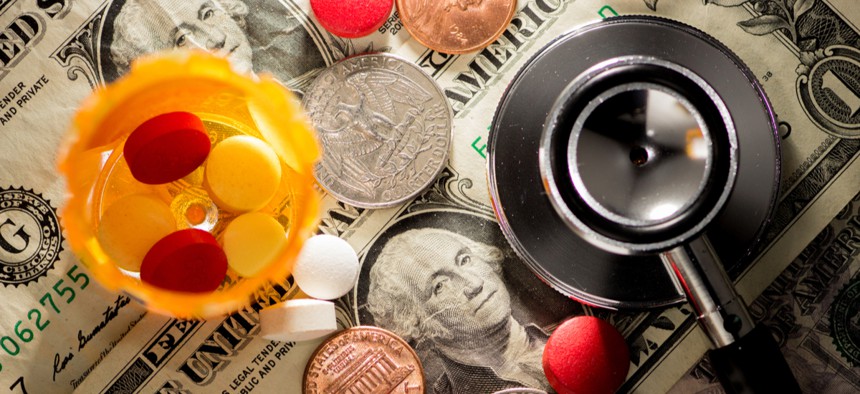Scammers Are Trying to Get Medicare Numbers, HHS Warns

Video_Creative/Shutterstock.com
The Health and Human Services Department warns that scammers are attempting to get real Medicare and Medicaid numbers to fraudulently bill the government.
While the nation’s health care professionals and civil servants combat the coronavirus outbreak, criminals are trying to swindle and bilk the public any way they can, according to a warning from the agency leading the government’s COVID-19 response efforts.
In a COVID-19 fraud alert Wednesday, the Department of Health and Human Services Office of Inspector General details a slew of coronavirus-related scams and fraud schemes, including sales of fake tests and treatments for the disease.
“While many Americans are nobly rising to the occasion, sadly, some bad actors are preying on people’s fears for profit, perpetrating fraud schemes, including marketing fake COVID-19 test kits and unapproved treatments through telemarketing calls, social media platforms, and door-to-door visits,” the warning states.
The HHS OIG further warns that scammers are elevating their efforts to collect personal information—especially from senior citizens—they then use to fraudulently bill federal health care programs like Medicare and Medicaid. Claims denied by the government for items like unapproved COVID-19 tests could result in beneficiaries being responsible for the bill.
HHS has set up a National Center for Disaster Fraud Hotline and is encouraging the public to report suspicious activity via phone at (866) 720-5721 or via email to disaster@leo.gov.
HHS’ fraud alert is the latest in a list of several warnings from agencies. On March 24, the General Services Administration warned of a scam targeting federal contracting officers. The scammers pretend to be GSA contract holders in an attempt to sell the government items like hand sanitizers and cleaning chemicals at exorbitant prices.
On March 20, the Federal Trade Commission issued a second alert regarding cyber criminals circulating fake emails purporting to be from the World Health Organization. If users open the emails and click the links, their computers are injected with malware that could steal data.
The Food and Drug Administration, too, warned the public that it is “actively monitoring” for sales of fraudulent COVID-19 treatment. The FDA has issued several alerts, cautioning the public against using at-home testing kits that haven’t been vetted by the government. Meanwhile, Democrats on the House Oversight committee have authored letters to several companies seeking information about their at-home coronavirus test kits.
“It is critical that all consumers are protected from companies attempting to profit off of a public health crisis,” Oversight Committee Chairwoman Carolyn Maloney said. “I applaud the Economic and Consumer Policy Subcommittee for continuing to keep a close watch for all consumers.”
Customs and Border Protection officers are also on the lookout for fake coronavirus test kits. In mid-March, the agency intercepted packages of fake test kits at the Los Angeles International Airport International Mail Facility.
NEXT STORY: FCW Insider: March 25






